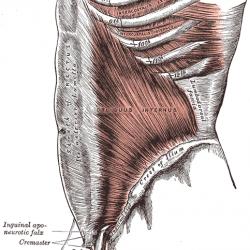Emergency Dental Care & Restoring Your Smile
Emergency dental care is essential for preserving the health and function of your teeth. Without timely intervention, minor oral issues can quickly become major problems that may require extensive treatment to repair. Simple treatments such as filling cavities or replacing missing teeth with dental implants can prevent further damage and help restore your smile. With prompt care and proper follow-up treatments, emergency dentists can help prevent further damage and restore your oral health.
If you have an urgent dental issue that requires immediate attention, it is important to contact an emergency dentist as soon as possible. An emergency dental care provider can assess the situation and determine the best course of action to take.
Emergency Dental Care
Dental emergencies can range from minor oral issues, such as a toothache or broken filling, to more serious conditions that require extensive care, such as a cracked or abscessed tooth. When deciding whether your condition requires emergency dental care, consider the following:
- Is there significant pain?
- Are you bleeding from the mouth or experiencing any other type of swelling or discomfort?
- Are your gums tender or red?
- Is there any visible damage to the teeth or surrounding structures, such as a broken filling or fracture in the tooth?
If you answer yes to any of these questions, contact an emergency dentist right away. An experienced emergency dentist can provide effective immediate care and work with you to determine the best plan of action for long-term treatment.
What are common dental emergencies?
Common dental emergencies include:
- Toothaches: Severe pain or sensitivity in the teeth is often a sign of an underlying problem, such as cavities or broken fillings. If you experience toothache, contact an emergency dentist right away for immediate care and follow-up treatment.
- Chipped/broken teeth: Even minor chips or cracks should be treated promptly. An emergency dentist can assess the damage and determine the best course of action, such as dental bonding or a crown, to protect the tooth.
- Knocked-out teeth: If you have knocked out a tooth, try to find it and rinse off any debris. Then contact an emergency dentist right away; they may be able to save the tooth by re-implanting it.
It is essential that you seek professional help for dental emergencies as soon as possible. Prompt treatment can prevent further damage and discomfort, while also minimizing the need for more extensive treatments such as root canals or dental implants. Even minor issues that seem insignificant at first glance can quickly become major problems if left untreated.
Follow-Up Care: Dental Implants
When a tooth is missing, dental implants can be used to restore its function and appearance. A dental implant consists of a titanium post that is surgically implanted into the jawbone to act as a root structure for the artificial tooth. The implant stimulates bone growth around it, creating a secure foundation for the artificial tooth. Once the implant has fused with the surrounding bone, an abutment is attached to the post, and a crown or bridge is placed on top of the abutment.
Dental implants are designed to look and feel just like natural teeth, allowing you to smile with confidence. They can also restore your mouth’s function by preventing bone deterioration that can occur when a tooth is missing. With proper care, dental implants can last a lifetime.
For more information about emergency dental care and how to restore your smile with dental implants, contact an experienced dentist today. With prompt attention and follow-up treatments, you can get the care you need to maintain your oral health.
Aftercare and Follow-Up
After you receive dental implants, it is important to have regular check-ups with your dentist to ensure the area around your implant is healthy and there are no signs of infection. You should also brush and floss regularly, as you would do with natural teeth, in order to prevent plaque buildup and maintain good oral hygiene. If you have any questions or concerns about caring for your implants, don't hesitate to consult your dentist.
In addition, you should avoid activities that could cause damage to your new tooth or implant, such as chewing hard candy or ice cubes and using tobacco products. There are also some foods that may be too difficult to chew with a dental implant in place; if this is the case for you, it is important to avoid these foods or cut them into smaller pieces before eating. With the proper care and maintenance, your dental implants can last a lifetime.
Conclusion
Emergency dental care can help restore your smile and prevent further damage from occurring. With prompt attention and follow-up treatments, you can get the care you need to maintain your oral health.
Additionally, dental implants are an effective solution for tooth replacement after a tooth extraction. They allow you to regain both function and aesthetics of missing teeth. With regular check-ups, proper maintenance, and mindful eating habits, your dental implants can last for many years to come.
If you are experiencing an urgent dental issue or are interested in learning more about how dental implants can restore your smile, contact an affordable dentist today. With the right care and treatment, you can get back to enjoying a healthy and confident smile.
More to Read:
Previous Posts:







